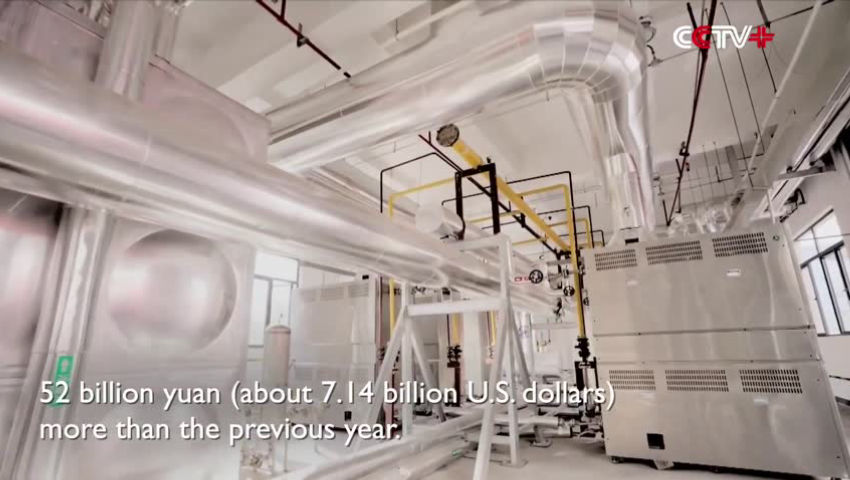You barged sealioned into this thread, and now you’re clutching your pearls because you’ve been asked why you’re subjecting a meme to artistic critique.
☆ Yσɠƚԋσʂ ☆
- 335 Posts
- 45 Comments

 2·33 minutes ago
2·33 minutes agoIf you actually read the article you’ll see that it’s discussing a study showing that AI in its current form is not capable of replacing human labor.
Perhaps take your own advice here if you’re unable to answer a simple and obvious question.

 3·2 hours ago
3·2 hours agoSeems like most of that is speculation from western think tanks. I guess we’ll see how things look by the end of the year. I expect that China will only accelerate moving away from fossil fuels use if for no other reason than it being a national security concern.
I mean you can critique anything you like. If you think a meme is worthy of your time to critique it, which you haven’t actually done by the way, then by all means be my guest.
I’ve explained to you that I see this as a throw away joke that doesn’t warrant the time to examine deeply. If you think this is something you need to spend your time analyzing and critiquing, by all means go ahead and do so. Maybe you can even contrast it with such masterpieces of meme art as this

Do you want me to comb through each image in that way?
What I asked you is why you feel the need to comb through this particular set of images. Have you felt the need to do that with memes such as the one above, if not then why? What specifically caused you to have such a profound reaction to the AI generated meme?

 6·3 hours ago
6·3 hours agoIf this means of democratization of online community and communication was to be truly democratic, it would be a system that requires the least amount of technical knowledge and resources.
That doesn’t really follow. Marxists acknowledge the necessity of division of labor and hierarchies. People with specific skills end up serving specific types of roles within the community. The notion of flat structures and direct democracy is an anarchist concept. Technically knowledgeable workers are still part of the working class, which is people who sell labour for a living. Their interests stand in direct opposition with the interests of capital owning class just as do those of all other workers.
This brings me to AI, and it’s current implementation and design, and it’s underlying motivations and desires. These systems suffer from the same issues that this very platform suffer from, which is, that they are stained with the values of capital at their heart, and they are in no means a technology that is “neutral” in its design or its implementation.**
This is a false premise because this technology exists outside capitalism. Community developed models or models developed in countries like China where different political and material conditions exist clearly fall outside capitalist framework. Given that this technology exists, and it’s being actively developed outside the west, I don’t really think this premise holds water.
It is the democratization of skill. It is the alienation of the Artist from the labor of producing art. As such, it does not matter that this technology has become “democratized” via open-source channels because at the heart of the technology, it’s intention and design, it’s implementation and commodification, lay the alienation of the artist from the process of creating art.
While Marx recognized how technology would be used to alienate workers within the capitalist framework, Marx never advocated against technological progress or automation. In fact, his whole argument is that the alienation of workers is precisely what sets the stage for socialism as capitalist system becomes increasingly unpalatable to the working majority.
China is a vibrant and powerful market economy, one that is governed and controlled by a technocratic party who have a profound understanding of market forces.
You’re coming dangerously close to making a fallacy of equating markets with capitalism here. Markets are not at odds with socialism in any way, nor is China even the first market driven socialist economy. I urge you to read up on Hungary and Yugoslavia as prior examples.
It should be remembered here, that the market economy of China operates within a cage, with no political influence on the state, but that does not make it immune to the demands and desires of Capitalists at the helm of states abroad.
This is a hand wavy statement that does not directly support your assertion regarding DeepSeek. You would have to explicitly establish the mechanism that you believe affects the way DeepSeek is subverted by external capitalist forces.
So at its heart, it has not changed what AI does for people, only how expensive AI is for capitalists in year-to-year operations. What good is this open-source tool if what is being open sourced are the same demands and desires of the capitalist class?
You’re once again using a false premise here. The obvious answer is that lower power cost makes this tool available to regular people. It wrests control of the tools out of the hands of capitalists and makes it possible for everyone to use them in any way they see fit. Another way to put it, is that it puts the means of production in the hands of the workers.
They are not democratizing the process of Artists and Laborers training their own models to perform specific and desired repetitive tasks as part of their own labor process in any form.
That’s literally what’s happening. AI tools like ComfyUI are already being used by artists to collaborate and bring their visions to life, particularly for smaller studios. These tools streamline the workflow, allowing for a faster transition from the initial sketch to a polished final product. They also facilitate an iterative and dynamic creative process, encouraging experimentation and leading to unexpected, innovative results. Far from replacing artists, AI expands their creative potential, enabling smaller teams to tackle more ambitious projects.
However, every attempt to restrict and manage the use of generative AI today, is simply an effort to prolong the full proletarianization process of the arts. Embracing it now only signals your alliance to that process.
It’s simply delaying the inevitable without actually doing anything to improve the situation in the long run. The AI boycott movement is peak liberal idealism. It’s the political equivalent of shaking a fist at the sky. Unhappy with the tech? Can’t imagine real action? Just vote it away! As if moral posturing ever stopped a single corporation.
Real action involves building instead of pleading. Open development where artists, engineers, and communities co-create tools is the only path to wrest control from Silicon Valley’s black boxes. You don’t vote out exploitation, you have to put in work to replace it. My whole argument in the original post is that the way forward is to build tools outside capitalist framework, instead of ceding control to corporations which is what rejecting the use of this tech will ultimately accomplish.
That’s right, rapidly approaching best before date. 🤣

 15·4 hours ago
15·4 hours agoI think the comparisons with the industrial revolution are very apt. We basically had a set of jobs that remained largely artisanal in nature until now, and we’re entering the stage of automation that’s starting to encroach in these domains. Exact same mechanic is playing out now as we saw play out with industrial automation becoming mainstream.

 3·5 hours ago
3·5 hours agoThings move at an incredible speed in China, I never cease to be amazed how quickly they can go from deciding to do something to actually doing it.
I kind of look at it more as history repeating as a farce. The US empire isn’t unique in any way, and it’s following the same trajectory as other empires before it have.

 9·6 hours ago
9·6 hours agoshort term use of coal is part of the overall transition plan https://www.visualcapitalist.com/chinas-energy-transition-in-5-charts/
And China is actually ahead of the targets they set there already https://climateenergyfinance.org/wp-content/uploads/2024/07/MONTHLY-CHINA-ENERGY-UPDATE-_-China-to-Achieve-its-2030-Energy-Target-in-July-2024.pdf

 28·6 hours ago
28·6 hours agoThe specter of Russia has become a central rallying cry for neoliberals, who increasingly frame it as the root justification for their policies. The narrative goes: “Elections must be suspended to prevent Russian manipulation. Budget cuts are necessary to avoid funding a potential invasion. Censorship of independent media is justified to combat disinformation.” By framing every crisis through the lens of Russian interference, neolibs can justify any power grab they want.

 6·6 hours ago
6·6 hours agoAh yeah, rewatched it, you’re right.

 20·6 hours ago
20·6 hours ago

 9·6 hours ago
9·6 hours agolooks like they’re building 40 reactors as we speak

 16·7 hours ago
16·7 hours agoThat is the single best description of our current geopolitical situation that I’ve seen to date. 🤣
In what way do you wish it was better executed? I would bet money that you would not even think of writing this critique if it was the same concept very poorly drawn by a human. I have never seen an artist critique a meme before on these grounds. The only reason you’re making your argument is because the image was not hand drawn.
It does, again, seem like you’re using this thought as an excuse to not engage in critique of these images, from an artistic perspective at least.
Everything doesn’t need to be high art. As you admit, the concept is funny, and it’s clear people get a chuckle out of it. That’s literally all this is, there’s no more depth to it. Somebody had a funny idea in their head and they fleshed it out using gen AI, then shared it and brightened other people’s day. As a photographer I do understand value of critique, but more importantly I also understand what needs to be critiqued.
You set up this false premise that we have to treat this as art and critique it, and that’s simply not the case. What you’re doing here is basically just telling people to stop having fun. It’s just gatekeeping.

 2·9 hours ago
2·9 hours agoI’d argue we’re at the point where there’s nothing the west can do. Chinese domestic chips are still a couple of generations behind, but the fact of the matter is that it simply doesn’t matter. The only place where bleeding edge chips are really important is in stuff like mobile devices where battery life is a key factor. For applications like data centers, you can just use more older chips to boost performance. It’s less efficient, but it will work fine as a stopgap measure. On top of that, legacy chips are what’s used for vast majority of applications like cars, appliances, robotics, etc. If the US goes nuclear and cuts off chip supply to China entirely, then all that’s going to do is accelerate the process of western chip companies going under.
The other thing to note is that we’re hitting limits of silicon because there’s nowhere to go past 1nm or so. At this point you have to make massive investments to get meager improvements on this substrate. This is why China’s efforts into developing stuff like carbon based chips are so interesting to watch. A new substrate could make silicon look like vacuum tubes overnight, and then there will be decades of improvements down the road. We might get chips that are both orders of magnitude faster and more power efficient as these things go hand in hand. If that happens China will pull ahead in ways that are simply unimaginable. They’d be able to process data on a scale that’s simply impossible with current tech.
Meanwhile, we can already see from the tariff war that pretty much nobody will go along with the US on banning Chinese chips. Canada might, but at this point even Europe looks doubtful. The rest of the world will be a hard no. We can see that happening with solar panels and EVs already. The US is headed towards becoming a hermit kingdom, which will be cut out of global technology stack dominated by China.
This will have huge repercussions because the US will be cut out of standards like 10G internet, and GPMI which will become dominant across the world. It’s going to become harder for US firms to collaborate with others, establish supply chains for their legacy tech, and so on.
The west absolutely does not have any high ground controlling major software or operating systems. I work in the industry, and I can tell you for a fact that pretty much all critical software infrastructure is open source and Linux based. I’m sure there are niche applications for stuff like CNC milling and so on that might only be produced by one company in the west, but these will be few and far between. China has also been intentionally encouraging domestic platforms to develop instead of relying on US based tech. That was the whole point of the firewall. It’s why China has stuff like TikTok and XHS. If anything, China is now more advanced in terms of software with stuff like WeChat which is a comprehensive platform that has no equivalent in the west. It’s not like China just woke up yesterday and realized there was a threat of software dominance by the west. They knew this to be the case for a long time, and have been actively working to mitigate it.
Very much agree regarding the security risk of backdoors, and this is why I think China should’ve been far more aggressive in phasing out western tech, especially on the hardware front.
I don’t think this meme is art at all. I think it’s a funny meme, and most people got a chuckle out of seeing it. I have spoken to artists on their perspective actually, and I practice photography myself which is a form of art. I think I understand the arguments people make quite well. The core of the critique people make has little to do with art when you get down to it.















Capitalist companies exist to make profit for their owners. The hype phase is now starting to die down because we’re getting more and more hard data from companies that bought into the hype.